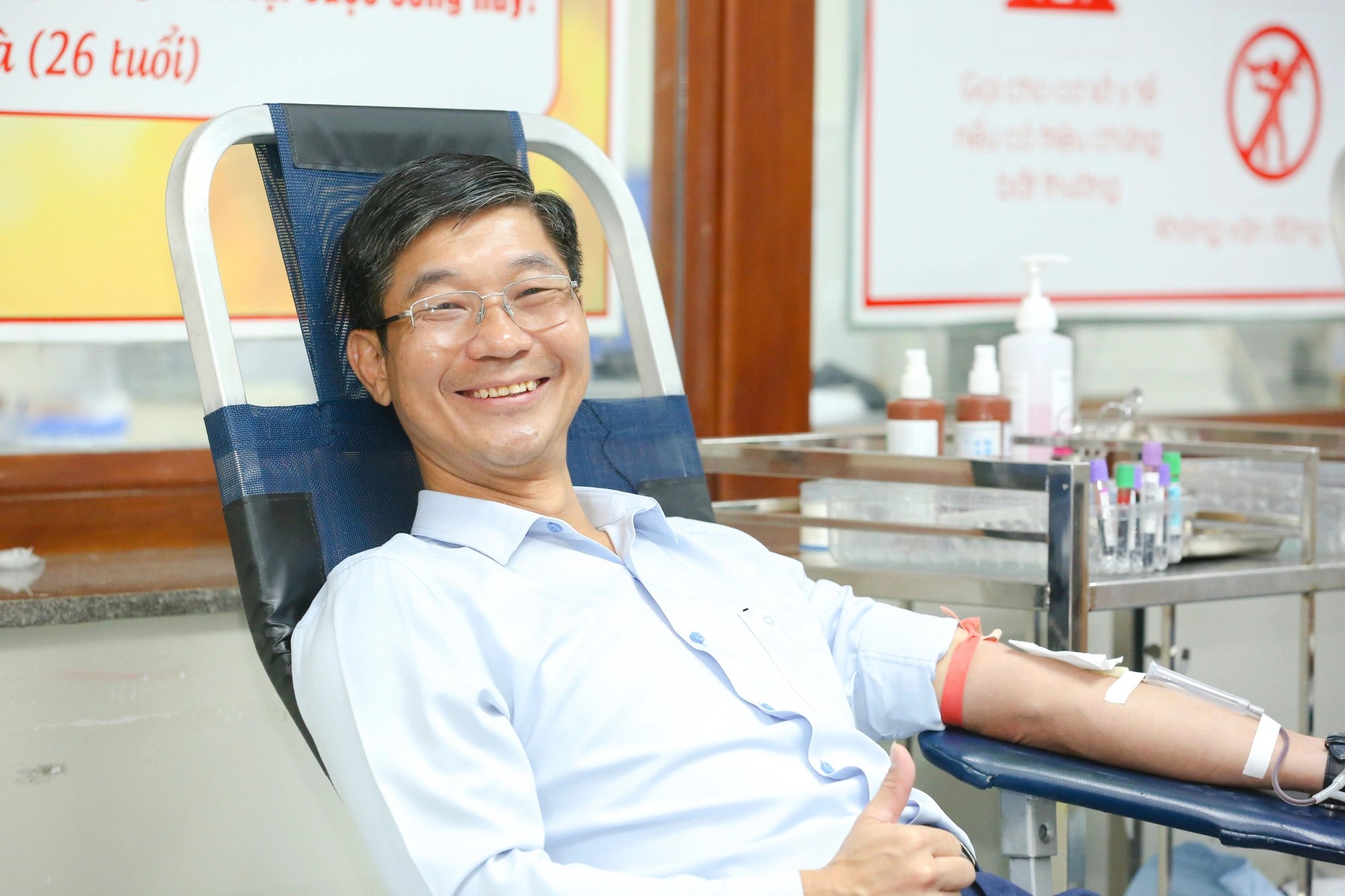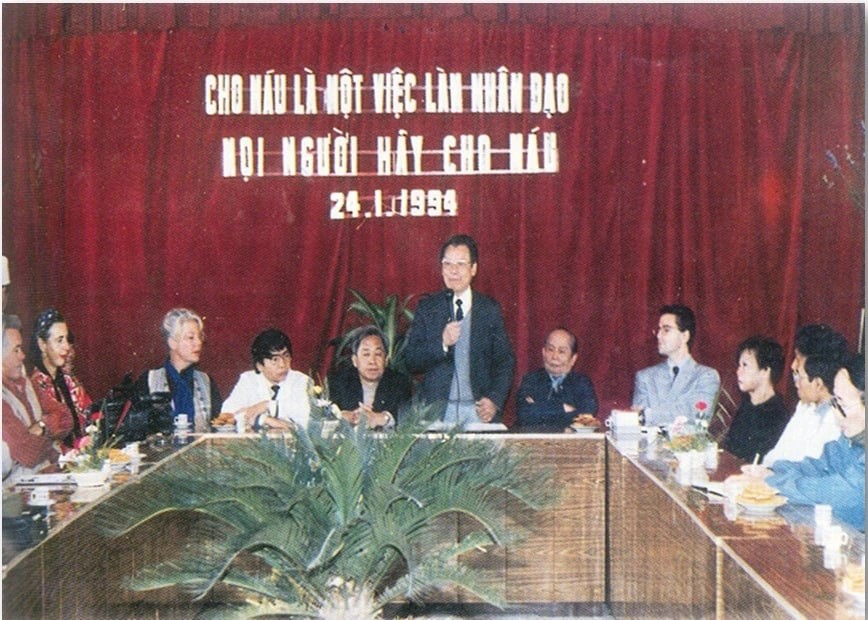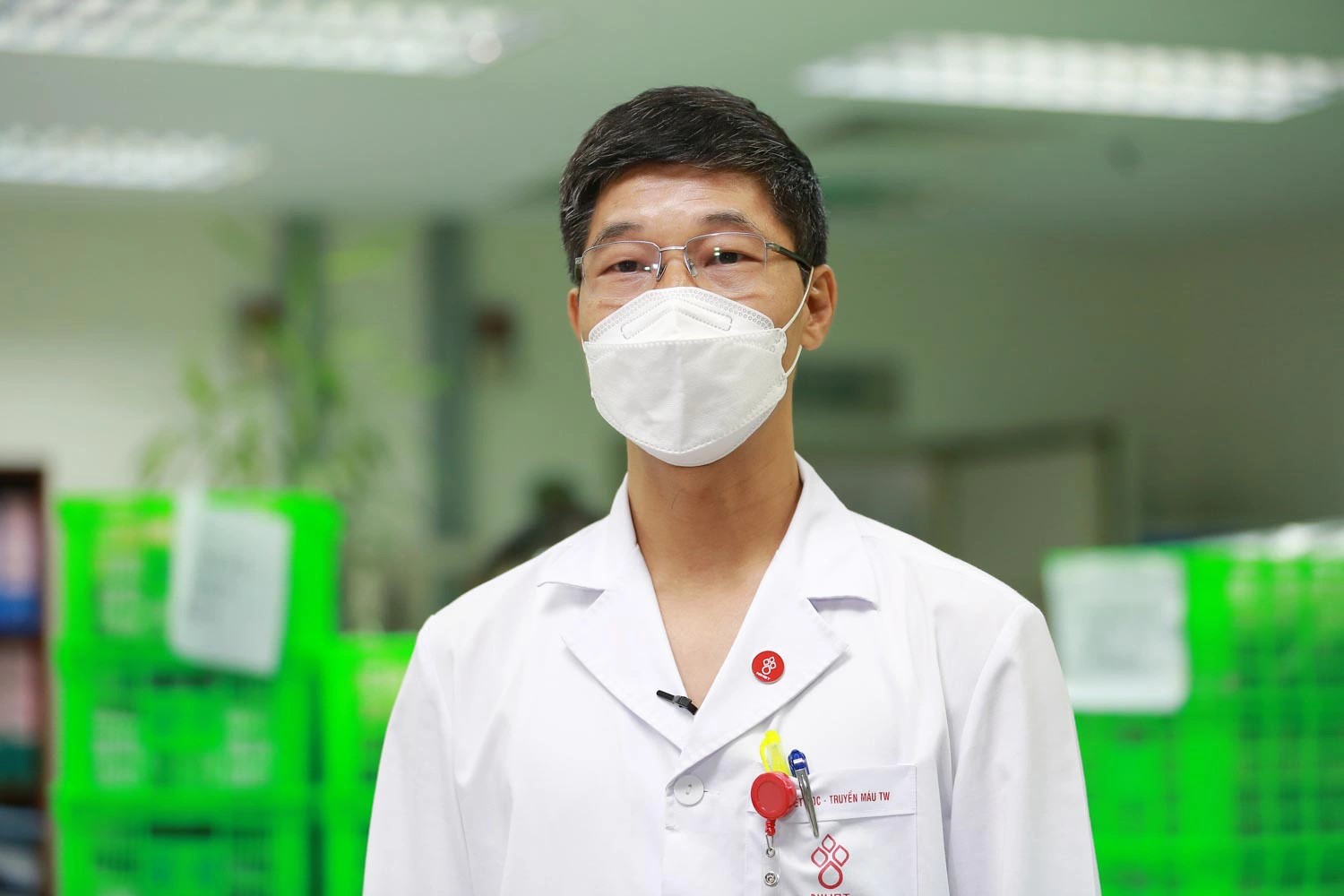“In the past, donating blood was considered something extremely terrible. Blood donors even suffered discrimination because they were supposedly so poor that they had to sell their blood for money.”
This is what Tran Ngoc Que, director of the National Blood Center under Vietnam's Central Institute of Hematology and Blood Transfusion in Hanoi, told Tuoi Tre (Youth) newspaper when he reflected on his 30-year career in dealing with blood.
The pioneers of promoting blood donation
In 1993, Que was a third-year student at Hanoi Medical University. As a medical student, he soon understood how profoundly important blood is for patients.
He and 12 other friends formed a volunteer group to reach out to young people and encourage them to donate blood.
In 1994, Que and his friends started a student club for charity. The club opened its doors to students from different universities in Hanoi.
Among many different activities, the club also encouraged its members to achieve their common goal of saving lives by volunteering to donate blood.
“At that time, we did not dare to name the club with the term 'blood donation,' but simply called it the Students' Club for Philanthropic Activities, as there was a lot of discrimination about blood donation at that time,” Que recalled.
“Many people thought donating blood was bad so they ate very much to have a volume of blood that they could not donate. Also, many people thought that only poor people who were destitute needed to donate or sell blood for money."
To reach young people and get them to donate blood, club members had to take advantage of various situations at the time.
These included joint meetings for students, International Women’s Day celebrations, or the like where they tried to educate students about the importance and benefits of donating blood and explained to them that giving blood has no negative impact on their health.
On January 24, 1994, an event to mark Blood Donation Day was held for the first time in Hanoi.
“This was a very important milestone showing the development of the blood donation movement at that time,” Que proudly said.
In 1994, 138,000 units of blood were collected nationwide, 15 percent of which came from donations. A unit typically equals 250 millimeters in Vietnam.
Now 1.4 million units of blood are donated each year, thanks to a blood donation rate of up to 99 percent.
“Blood donation, which began as a voluntary activity, is now a regular activity. Programs to donate blood for humanitarian goals are held regularly and there are permanent centers for blood donation throughout the country,” Que said.
|
|
| The first blood donation campaign was held in Hanoi on January 24, 1994. Photo: Supplied |
Continuing his mission of passion
After graduating from Hanoi Medical University, Que worked at the Central Institute of Hematology and Blood Transfusion and continued his blood donation.
To date, he has given blood more than 60 times and is one of 100 people who will be honored in 2023 for their outstanding contributions to blood donation.
While working in the blood donation department, Que knew many patients who needed blood urgently, but unfortunately their blood type is rare, so it was exceedingly difficult to find the right blood type.
“At that time, I thought it was necessary to have a source of rare blood types available when there was a need," Que said. “So, I made a list of people who had already donated rare blood and asked them to help us later when we needed their blood type."
The initiative was later supported by the hospital’s board of directors, and the Rare Blood Type Donor Club was formed.
The club's membership grew over time thanks to the expansion to members’ relatives and family.
The number of people willing to donate blood increased as the club developed, Que said.
|
|
| Tran Ngoc Que works as director of the National Blood Center under the Central Institute of Hematology and Blood Transfusion in Hanoi. Photo: Supplied |
In addition, Que is a member of a phenotypic blood donation group.
He explained that some patients who need to receive many blood transfusions have the possibility of developing antigens that target their own red cells.
To prevent this risk, patients must be provided with the appropriate phenotype blood. A person’s phenotype is determined by the expression of antigens on their red cells.
Patients who need frequent blood supplies, such as those with thalassemia or bone marrow failure syndromes, require the most compatible blood: phenotypic blood.
This means that aside from the ABO blood type and Rh blood group, patients should be thoroughly tested so that each of them can be treated appropriately on an individual basis.
“I have been working in the blood donation department for more than 30 years and I believe we will advance much more in the near future,” Que said.
“There will be more progress not only in blood donation, platelet donation, and plasma donation but also in rare blood giving and compatible blood types, raising hopes that more patients will be helped."
Like us on Facebook or follow us on Twitter to get the latest news about Vietnam!





















































